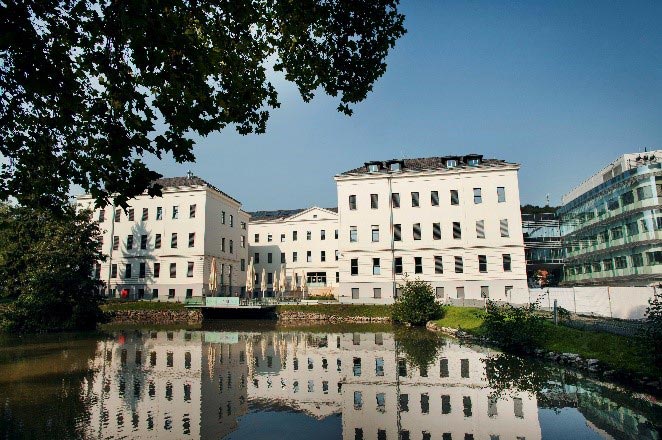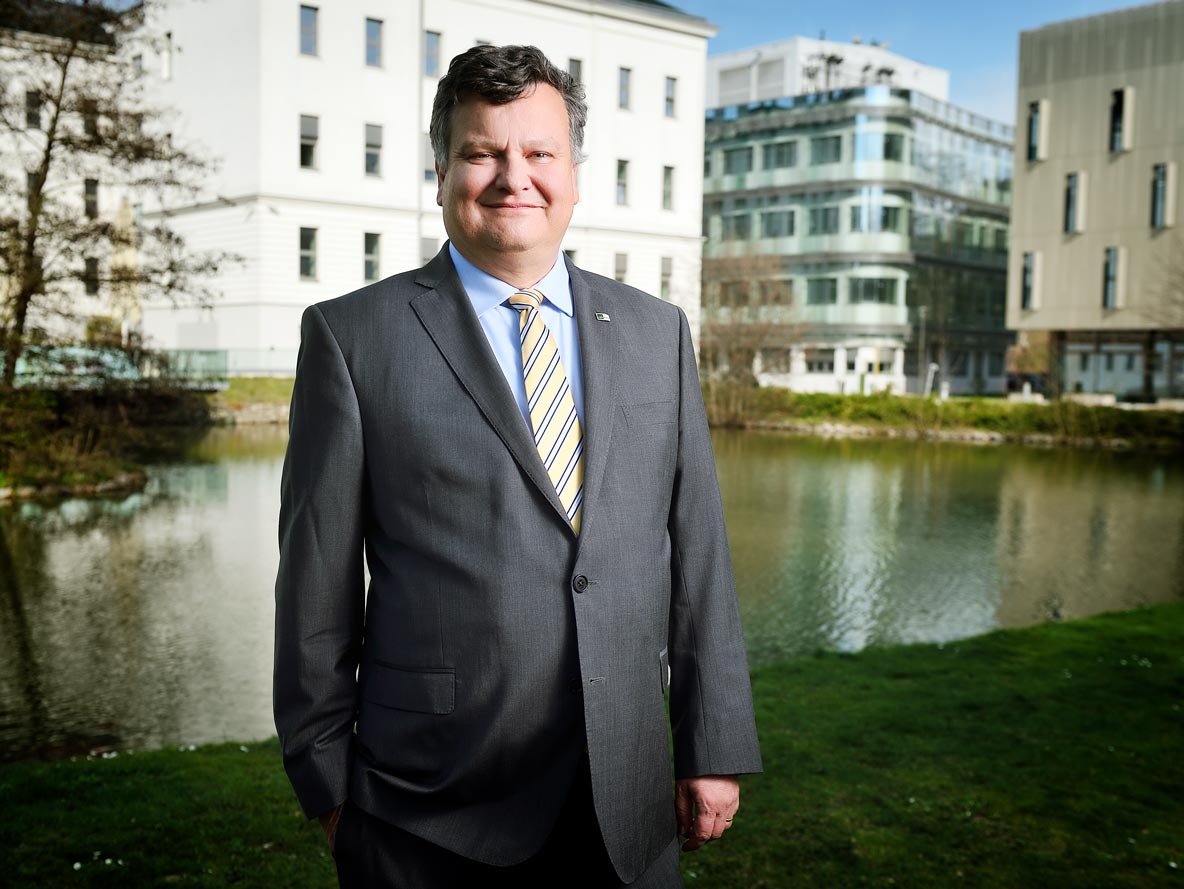June 16, 2020
IST Austria evaluation: “a positive trajectory “
Third evaluation of institute acknowledges accomplishments so far and recommends long term commitment

Today, the evaluation report of IST Austria was published. The institute is legally required to undergo an evaluation every four years. The report states: “Clearly, IST Austria is following a positive trajectory to meet the goals which have been assigned to it by the Austrian government and the state of Lower Austria.” At the same time, it recommends that the Austrian government and the state of Lower Austria keep to their long term commitment.
A top-class review panel, chaired by Serge Haroche, Nobel laureate 2012 in Physics, evaluated the development and research output of the institute in compliance with international standards and drew a very positive conclusion for the 2016-2019 period. The international panel of six reviewers―two Nobel laureates and a Turing awardee among them―left no doubt that to achieve the ambitious long-term goal of becoming an international leader in basic research, a long term commitment from the government and the state of Lower Austria is essential. The Haroche report states: “For this success to be confirmed in the future, it is essential that the Austrian Government and the state of Lower Austria keep to their long term commitment and let IST Austria have complete academic freedom to choose its research fields and its strategy.” Further, it recommends IST Austria should keep growing at the present pace, by about five PIs per year, to reach the milestones of 90 PIs by 2026 and 150 PIs by 2036. For the institute to achieve this growth, the report asks the politicians to provide long term stability for the future.
“The core message is very encouraging to me,” states IST Austria President Tom Henzinger, “the direction and the pace are right. Over the last ten years, we did not only achieve world-class accomplishments in research but also laid a solid foundation for a top-class institute. I am very grateful for the comprehensive, impartial, and critical view that the Haroche report gives of IST Austria. It acknowledges our way to success and motivates us to carry on.”

The current, third review of the Institute, covering the period 2016-2019, focused on the scientific achievements, the general development, the hiring strategy of the Institute, its research portfolio, the graduate school, the scientific and administrative support structures, efforts in technology transfer and science education, as well as its internal organization and plans for the future. IST Austria celebrated its 10th anniversary in 2019. Therefore, this evaluation marked a special point in time. It allows to look back on its first decade of rapid growth and remarkable successes and planning for future expansion beyond the initial target size of 90 groups towards a steady-state that will be required for sustained success and visibility at the top of the international scientific community. Furthermore, an important recommendation of the evaluation is to run a combined master-PhD program that enables exceptionally talented students to start their research career at IST Austria immediately after their bachelor’s degree.
The 2019 review panel consisted of seven internationally renowned scientists who also have considerable experience in science management. The reviewers included two Nobel laureates, one Turing award winner, and former or current presidents and directors of prestigious research institutions around the world. The scientific expertise of the panel members covered all fields represented at IST Austria. The reviewers received detailed documentation from the institute. They also visited the campus for two consecutive days on December 2 and 3, 2019, to assess the progress that has been made in the development of IST Austria. The panel submitted its report in February 2020. As a next step, the evaluation report is to be presented to the Federal Parliament of Austria.



